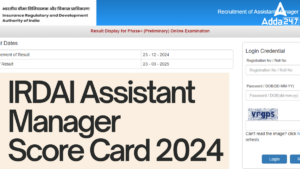1. Forfeit [fawr-fit]
Noun: a fine; penalty; an act of forfeiting; forfeiture; something to which the right is lost, as for commission of a crime or misdeed, neglect of duty, or violation of a contract; an article deposited in a game because of a mistake and redeemable by a fine or penalty.
Synonyms: cost, damages, fine, loss, mulct, penalty, relinquishment.
Antonyms: award, reward, gain, victory.
2. Infringe [in-frinj]
Verb: to commit a breach or infraction of; violate or transgress; to infringe a rule; to encroach or trespass (usually followed by on or upon).
Synonyms: breach, contravene, disobey, encroach, impose, intrude, meddle, offend, trespass, borrow, break, crash, entrench, infract, invade, lift, obtrude, pirate, presume, steal.
Antonyms: give, obey, receive, comply.
Example: Needless to say, both Section 95 of the crpc and Section 295A of the IPC are remnants of India’s colonial past, and ought to really have no place in a modern, liberal democracy.
3. Remnant [rem-nuh nt]
Noun: a remaining, usually small part, quantity, number, or the like; a fragment or scrap; a small, unsold or unused piece of cloth, lace, etc., as at the end of a bolt; a trace; vestige:
Adjective: remaining; leftover.
Synonyms: bit, fragment, particle, piece, remains, residue, shred, vestige, balance, dregs, dross, end, excess, hangover, heel, leavings, lees, leftovers, part, portion, remainder, residual, residuum.
Antonyms: whole, base, core, lack.
Example: In a just and tolerant society, one would imagine the courts would accord to rules of this kind the narrowest possible construal, allowing the greatest possible latitude to free expression.
4. Construe [verb kuh n-stroo]
Verb: to give the meaning or intention of; explain; interpret; to deduce by inference or interpretation; infer.
Synonyms: define, infer, interpret, parse, translate, analyze, decipher, explicate, expound, read, render, take, understand, figure it to be, one’s best guess, spell out.
Antonyms: misunderstand, cloud, confuse, fail.
5. Latitude [lat-i-tood, -tyood]
Noun: freedom from narrow restrictions; freedom of action, opinion, etc.
Synonyms: elbow room, breadth, compass, extent, independence, indulgence, laxity, leeway, liberty, license, margin, play, range, reach, room, run, space, span, spread, sweep.
Antonyms: extreme, limitation, restriction.
Example: Her actions, the government claimed, militated against Section 295A, and, therefore, the ban on her book was entirely justified.
6. Militate [mil-i-teyt]
Verb: to have a substantial effect; weigh heavily.
Synonyms: mean, weigh, import, matter, militate, rate, signify, tell, carry weight, cut ice, enter into consideration.
Antonyms: disregard, estimate, excludeguess.
Example: Inexplicably, however, both these conditions, the court found, were met by the book.
8. Inexplicable [in-ek-spli-kuh-buh l, in-ik-splik-uh-buh l]
Adjective: not explicable; incapable of being accounted for or explained.
Synonyms: peculiarly, queerly, strangely, ridiculously, unusually.
Example: It’s certainly plausible that the contents of Basava Vachana Deepthi run counter to Basaveshwara’s Vachanas.
9. Plausible [plaw-zuh-buh l]
Adjective: having an appearance of truth or reason; seemingly worthy of approval or acceptance; credible; believable; a plausible plot; well-spoken and apparently, but often deceptively, worthy of confidence or trust.
Synonyms: conceivable, credible, logical, persuasive, possible, probable, tenable, valid, creditable, like enough, likely, presumable, smooth, sound, supposable, very likely.
Antonyms: impossible, improbable, inconceivable, irrational.
Example: To the court, there exists a right not to be ridiculed or offended, a right that it placed on a decorated pedestal.
10. Pedestal [ped-uh-stl]
Noun: an architectural support for a column, statue, vase, or the like; a supporting structure or piece; base.
Synonyms: podium, base, bed, bottom, foot, foundation, mounting, platform, plinth.
Antonym: top.




 The Hindu Review October 2022: Download ...
The Hindu Review October 2022: Download ...
 SSC Calendar 2025-26 Out, Check SSC CGL,...
SSC Calendar 2025-26 Out, Check SSC CGL,...
 IRDAI Assistant Manager Score Card 2024 ...
IRDAI Assistant Manager Score Card 2024 ...




